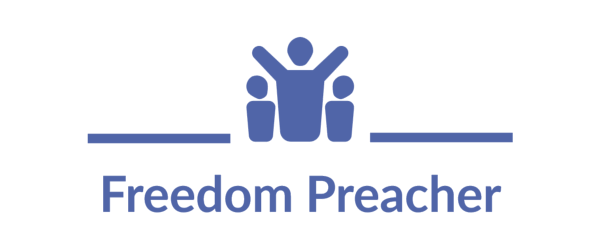Most of my experience in understanding career problems comes from my own career efforts and my refusal to accept the seemingly inevitable where career frustrations are concerned. Maybe it’s idealism, maybe it’s just stubbornness, but I’ve always been determined to do something with my life that I considered important.
Ever since discovering, in my late 20s, that much of the conflict and suffering that plagues our societies is not only unnecessary but fixable, I have found it difficult to maintain much enthusiasm for anything else but this information.
Careers are about solving problems. I realize there are many, many problems that can be addressed through work and career. But to me, this problem – our insistence on basing our societies on coercion and violence, which continues to destroy us – combines urgency with a widespread lack of awareness and active resistance to solutions that I find remarkable. I believe Gary North’s definition of a “calling” fits: “The most important thing you can do, at which you would be the most difficult to replace.”
In short, I am determined to add my voice to those who are trying to prevent our species from self-destruction. But where to start? Perhaps because of my own career difficulties, I have long believed that careers could be an ideal entry point for promoting rational behavior.
My academic background is in business – a Bachelor’s in Marketing with some graduate work in an MBA program. The “business world” wound up providing me with plenty of raw material for careersanity.com; many of the articles are based on my experiences in the corporate life.
But the real issue regarding my background is this: what have I done, what have I learned, what have I figured out that can be helpful to you in your attempts to create (or re-create) a decent career for yourself? I will do my best to answer that here.
Like many, I didn’t know what I really wanted to do before starting my career. As a result, I wound up with over 10 years’ experience in the world of sales and marketing before I admitted to myself that I disliked it. I wound up leaving corporate life for the more independent, if financially uncertain*, life of a freelance computer consultant. But first I decided to find out as much as I could about why my work experience had been so frustrating, especially since it hadn’t started out that way.
Most people I knew seemed to have similar feelings about their work – something they had to do but generally avoided as much as possible. Even getting them to talk about their work, beyond generalities, proved difficult most of the time. I realized that I was by no means alone with my lack of enthusiasm for work.
But from time to time I would encounter the opposite: someone who enjoyed the work he or she was doing, took pride in the quality of the work, and recognized the difference this made to others. I came to realize that enjoying, or at least being comfortable with, one’s work was not impossible. Maybe not easy to accomplish or widely encountered – but not impossible.
Since I had ruled out “impossible” as a reason for my own lack of enthusiasm toward my career, there were only two possibilities — well, three – left:
- I was doing something wrong, or
- The world was doing something wrong, or
- Some combination of 1 and 2
Investigating all possible alternatives made sense to me. I had never had any illusions about my own infallibility, so choice #1 certainly was a candidate. I had been impressed with psychotherapist Nathaniel Branden’s books so I joined one of his therapy groups. I also took a series of “Career Courses” with a colleague of his which explored career issues.
It turned out I was doing something wrong: I had absorbed a somewhat typical view of life that limited my potential accomplishments. I wasn’t getting very far with my career because, deep down, I really didn’t think it was possible.
But choice #2 had plenty of appeal as well. My informal observations indicated that relatively few people felt any real connection to their work, that most saw it as something they had to do to survive… period. Surely something this pervasive must be more than coincidence, huge sectors of the population just happening to make the same kinds of mistakes?
In addition to exploring my own decision-making mechanism via psychotherapy and related techniques, I began to look more closely at career and work in general, along with the impact various societal structures have had on them. This led me to investigate many of the structures themselves, along with some of the philosophical bases involved.
This combined internal / external analysis – examining my own background, motivations, and attitudes from a psychological standpoint AND investigating work and career in society at large – turned out to be quite productive.
I realized that choice #3 above – a combination of individuals’ behavior and a society that puts very little, if any, emphasis on individual career satisfaction – explained the career (and life) frustrations I saw in myself and all around me.
This was very exciting! For one, it explained things rather well: yes, many people were making choices that led to less satisfying careers than they might otherwise have achieved. But how could so many people be making similarly unsatisfying choices? I realized that just as I had “absorbed” a limited view of life’s possibilities from the world around me, quite a few others had as well.
But most exciting of all was this: if at least some of my disappointment in my career progress was due to things that I was doing (or not doing) – this meant that there was hope after all. Rather than waiting for some magical day when the world around me would rearrange itself according to my specifications, there were things I could do that would get me closer to the kind of career and life that I wanted.
Did my own career improve as a result of the things I learned? Most definitely. I began to take my own desire to improve my career much more seriously; more importantly, I began taking action based on my goals. Among other things, I moved into a more technical field, created a position for myself within a company, took a sabbatical, co-founded a local computer publication, and developed a new career for myself as a freelance IT consultant. All of these took a level of confidence and risk-tolerance that I did not have prior to my self-improvement campaign.
Personal Characteristics
Possibly more important than my experiences are some innate abilities I have that help in dealing with others. Everybody has some kind of natural** talent; in my case it is an ability to identify with another person very quickly, to be able to see a situation from that person’s perspective more or less instinctively. This has made an enormous difference to me in numerous situations as an employee, a manager, a “general contractor” of sorts during a large property renovation, an advertising salesman, and numerous other business and social environments.
I don’t think there is anything mysterious or exotic about this, either. All I do is pretty much quit being me and “become” the other person instead for a little while, then I go back to being me again. This can make negotiations almost intuitive: rather than guessing what the other person thinks about a proposal, I can almost know since I listen to the proposal through that person’s ears, so to speak.
For a great example of how this ability helped me in my early days as a “computer guy,” see “How listening well brought me a great client.”
Understanding and empathizing with someone else’s needs, then proceeding to work toward fulfilling them, is at the core of any successful exchange. By definition it is a tricky situation: one party has the need (and, presumably, the resources); the other has the skills. The quality of the finished product, then – in the customer’s terms — depends to a great extent on the depth of the communication between the parties.
One indicator of the significance of all this in today’s employment climate comes from a recent podcast, “What Employers Want,” by CareerChat of Miami University. Rick Hearin, Director of the Office of Career Services, says that employers consistently mention communication and ability to work well with others as primary areas in which new hires need to improve.
One way to improve communication with another person is to identify more closely, to empathize more, with that person. Skilled entertainers, at least those performing for live audiences, understand this, as do great public speakers and top salesmen. Having the best sense possible of how the audience or the prospective customer is reacting to your presentation gives you the best shot at truly communicating – provided you’re willing to tailor your approach accordingly.
Link: http://www.units.muohio.edu/careers/students/podcast/
* “Lack of security” is one of the main objections many have to doing freelance work. This made more sense in healthier economic times… note the “security” experienced by millions of workers today who have trusted their financial well-being to “the company.”
** Although I have had this tendency as far back as I can remember, it did become much more pronounced after I went through therapy. Becoming more comfortable with myself helped me significantly in my dealings with others.

